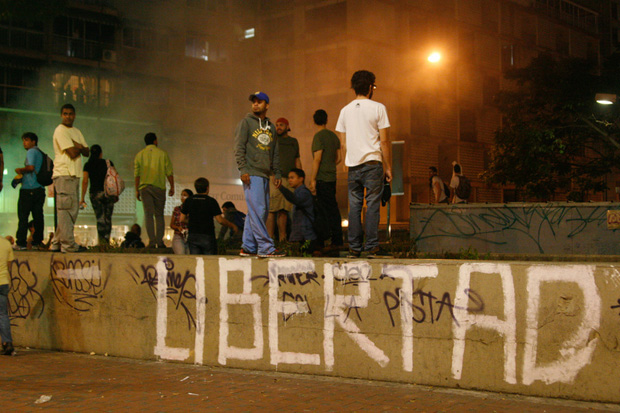Venezuela: The bottom has a basement
Like other countries, Venezuela’s young are eager to explore the world. Every opportunity to learn becomes important in the formation of the young mind. In Venezuela, a crippled education system prevents normal development. While the well-born go to private schools and have access to every benefit, the mass of Venezuela’s students confront an educational system that tells them: “You can’t but you tried.”
The most embarrassing and painful thing about the deplorable state of the country’s schools is the level of the government’s indifference. Though the government of Nicolás Maduro offers programmes like “Simoncito”, “Mision Ribas” and “Mision Robinson” these is basic education that doesn’t adequately prepare students to pursue higher studies. The programmes seem to condemn the disadvantaged among Venezuela’s population to a remedial existence. If some of these children make it to higher education, the odds are stacked against them and their families.
In the end, it all comes down to money. Venezuela needs to spend more to let students be students. But with foreign reserves short, all but national priorities are left off the funding list. Every area of science instruction needs improvement. Budgets are not even close to covering the costs of labs, let alone providing learning aids or even actual textbooks. A prize-winning robotics team at Caracas’ Universidad Simon Bolivar works with outdated electronics that are often patched together. When the team wanted to take part in an international competition, they were denied assistance — meaning just a few of the team could do it because that was all they could afford to pay out of their own pockets. Another group, which took part in the Latin American conference of the model UN, found themselves staying in primitive conditions in Mexico because they were denied dollars, the currency they needed to pay bills. Despite the discomfort, the group won six awards.
Even with the obvious deficiencies in education, Venezuela has a large population of well-prepared professionals across a wide spectrum of expertise. But based on political affiliations, these people cannot work for the development of the nation. No wonder Venezuelans have begun to leave the country in search of a better future for themselves and their families. This exodus is manifesting itself worst of all among teachers. The ramshackle education system can ill afford this brain drain. But, again, it’s understandable when even those with advanced degrees from internationally respected institutions earn less than approximately £40 per month. When the government’s own basic food basket is priced at nearly £200 per month, it’s impossible to support a family without second or third jobs. Under strict rules, teachers are not allowed to apply for the loans that could support home or car ownership. In effect, teachers are sentenced to live with relatives for life. Yet they continue to teach out of love for the craft with the hope they they can raise a new generation of Venezuelans who can think for themselves and question dogma. Without them, the youth of Venezuela would be lost.
In recent interviews, the educational minister Hector Rodriguez said: “We are not going to take you out of poverty for you to go and become opposites.” His statement meant that Venezuela’s students should understand that their wings are already clipped and any dream of progress or improvement is invalid.
The government’s approach to education aims to make Venezuelans think it has the absolute truth and will decide what’s right for students. The lower classes won’t have any choice but to believe what they are told.
After 15 years Venezuelans have become accustomed to waiting for the government to wave a magic wand to provide what they need. The sense of personal responsibility now seems lost. Effort doesn’t deliver results, so Venezuelans don’t try. It’s an indirect way for the government to choose a person’s destiny.
At the same time, scarcity – and not just in an educational sense – is the new normal. Everyday basics like toilet paper, coffee or cooking oil are the subjects of long hunts that lead to the back of an equally long queue. Hospitals cancel operations for lack of supplies and cancer patients miss treatment for lack of medicine. And even though the government’s late March devaluation of the bolivar will fill the shelves in the shops, the average Venezuelan will be unable to afford the supplies.
For the government, scarcity is just a glitch — just like the blackouts when “iguanas eat the cables” – and not because the energy minister is not doing his job.
It’s impossible to walk down streets without being paranoid — one eye on the road and the other keeping watch of everything around you. On average 48 people are murdered in the country every day. Venezuelans can be beaten and robbed with no recourse to justice because the police and the criminals are often in partnership.
The Bolivarian Revolution was supposed to bring improvements, but the lack of daily essentials and a robust education system leads one to the conclusion: The basement has a bottom.
This article was posted on April 7, 2014 at indexoncensorship.org

